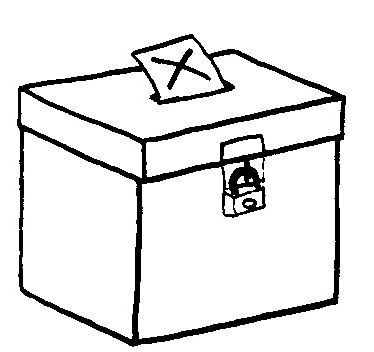Debate
Each fortnight there will be a specific subject of debate on either politics or philosophical thought, under which we would like to see user generated opinion and discussion from all sides of the spectrum at all levels and abilities.
The Proportional Representation electoral system would be detrimental to democracy and representation in Britain. Debate.
A background on the PR voting system:
Proportional representation (PR), sometimes referred to as full representation, is a class of voting system aimed at securing a close match between the percentage of votes that groups of candidates obtain in elections, and the percentage of seats they receive (e.g., in legislative assemblies).
PR is often contrasted to plurality voting systems, such as those commonly used in the United States and (much of) the United Kingdom, where disproportional seat distribution results from the division of voters into multiple electoral districts, especially “winner takes all” plurality (“first-past-the-post” or FPTP) districts.
(taken from wikipedia: http://en.wikipedia.org/wiki/Proportional_representation)
And a little discussion to begin with:

Elections have grown to centre more and more around the party leaders. There is something of an illusion that we have a presidential system here in the UK (the ‘presidential’ tv debates of course did much to strengthen this illusion); and that when people vote, they are voting for the party leader they want as prime minister.
Of course, in our system of parliament, this is simply not the case. It is a system that is based on local representation, i.e. constituencies elect their MPs on the basis of issues that they want represented in parliament. Though of course, with the growing media coverage and communications we have, the position of prime minister has become much more important and influential.
The percentage of the national vote that each leader got should have no relevancy as elections are confined to 650 separate constituencies. Though, the media has a tendency to highlight these discrepancies between ‘national figures’ (i.e. the percentage of the overall vote) and the number of seats that each party gains, and this is what people tend to follow. It is once again the presidential illusion.
Due to party discipline, and the dangers of not voting with the party line, there is really little room for MPs to convey local issues, to vote as their constituencies would like them to.
Because of this many would argue that local representation is obselete. But we have seen some situations in which MPs have voted with their consciencs and/or local constiuencies (i.e. one of Blair’s anti-terror bills).
I thus, do not think local representation is completely dead, and that, in extraordinary circumstances, it surfaces, along with the conscience of the MP.
I’m ranting now, and, seeing as this is a debate, I’m going to take a side. That being we should keep our current electoral system; the PR electoral system would, I believe, be detrimental.
If you remove it/change it, the following issues may well arise…
>Parliamentary paralysis.
Having proportional representation will mean that much smaller parties, with minority issues will have a much greater presence within parliament. For example, the BNP would have a number of seats. Perhaps parliament would become paralyzed by so many competing minority issues.
>What would be the point of MPs?
Of course, there has been much animosity toward MPs recently due to the the expenses scandal, but when they group themselves, they are able to keep governments in check. They also provide local representation and surgeries for their constituency. Under PR they would have no discernible use; they would simply be voting tools for passing government legislation.
besides…
>First-past-the-post does work
Mr Cameron and Mr Clegg have told us that our system is ‘broken’. Though, in the last one hundred years, we have only had three hung parliaments (1929, 1974, 2010).
I look forward to hearing your views…





Heres my two cents.
I Live in Éire where we have a PR system.From my point
of view it seems to work well enough.There are usually clearly defined ”Big” parties though it is rare to have one party with an overall majority,this dose not tend to cause instability as the smaller parties know that if they rock the boat too much while in goverment over a minor issue they would face a backlash at the polls.At the moment we have a fianna fáil(big) and green(small) coalition.The small party tends to work as a sort of consience for the goverment as they know that their support is liable to be affected more by their actions than the big parties who tend to have well established grassroots.
Overall I support the PR system as I feel the election results better reflect the will of the people under this system.
As far as the BNP getting seats in parliment is concerned there is a similar situation in the republic with Sinn Fein.While they have some support and do get some seats(4-5) due to the PR system,their lack of responsability and their poor track record mean that they never manage to increase that amount.there also is an unwritten rule that the large parties wont go into coliation with them as it would be image suicide.I would imagine that it would work out the same way in the UK with the BNP.
It usually produces a strong and stable government with a majority (of course, the 2010 election contradicts this) but look at the few times there have been hung parliaments. Also, smaller extremists parties don’t get to hold the balance of power.
The Italian government uses Party List system (?) which is a form of PR and it’s had around 50 governments in the past 50 years…
R does of course represent the wishes of the people better than FPTP. PR is though a bit of a catch all term. It includes everything from AV, maintaining small constituencies with a single elected member, or a full PR where the whole nation is considered as one constituency. We must not only have a national debate on PR vs FPTP, but also what kind of PR we offer.
There are many reasons to continue using FPTP. It is tested, it gives us a strong government with the ability to push through the legislation people voted for without giving small parties a power greater than their votes should allow. An example would be the most recent election where the lib dems lost seats, were much smaller than the two biggest parties in terms of seats, yet in many ways held the most power. In many true PR systems we would also see greatly expanded constituencies, or the removal of constituencies all together. This is not only bad for business, but also represents a centralisation of power where decisions are made for an area by people who have probably never been to said area and have no real interest there.
Of course you can look at the many countries that successfully use PR in one form or another. You can also point out that you could use a form of PR which keeps constituencies. But is the UK as a whole ready for PR? One factor is simply to look at the way our government works. Even the layout of the House of Commons favours adversary. Nations using PR have a different style of politics where parties work together in the national interest (or at least that’s what they say ) but here we have a government and the opposition, paid to oppose the government. There is also the media who are perhaps too used to the British way of doing politics.
There are also problems with each of the forms of PR as well. For example STV is fairly complex and given the sometimes large differences in recounts this could well be very dangerous. It also has the problem of who do you take the first from. In an exaggerated hypothetical (Because its the only way I can think to explain this point) If being elected requires 3000 votes in an area, and person A has 4000, B 2000 and C 1000. Person A has his first 3000 counted and he has a seat, then the next 1000 for him will go to their second choice. What if the 3000 that have been counted to get his/her seat all had their second choice as person C, but the last 1000 (the ones whose second choice is actually counted) have their second choice as Person B? Person B would get the seat, even though fairness should say that person C has more votes.
There are many good things about FPTP, and these shouldn’t be forgotten. I do however say this as a supporter of PR (my preferred system being a PR-FPTP hybrid called additional member system, or AMS). I simply think that we need to look carefully at the way we change the voting system.
[…] Firstly, The Glottal Stop, which amongst other things aims to focus our attention in a fortnightly fashion on a particular subject of debate. At the moment, the question in hand is proportional representation. […]